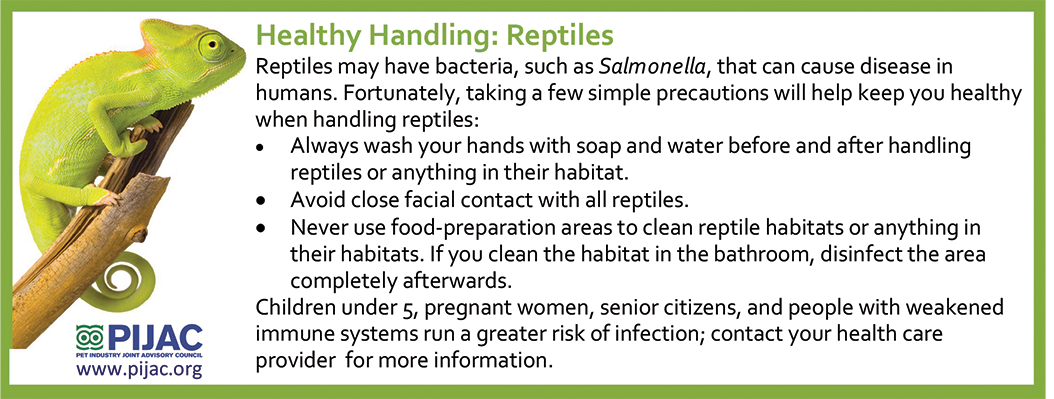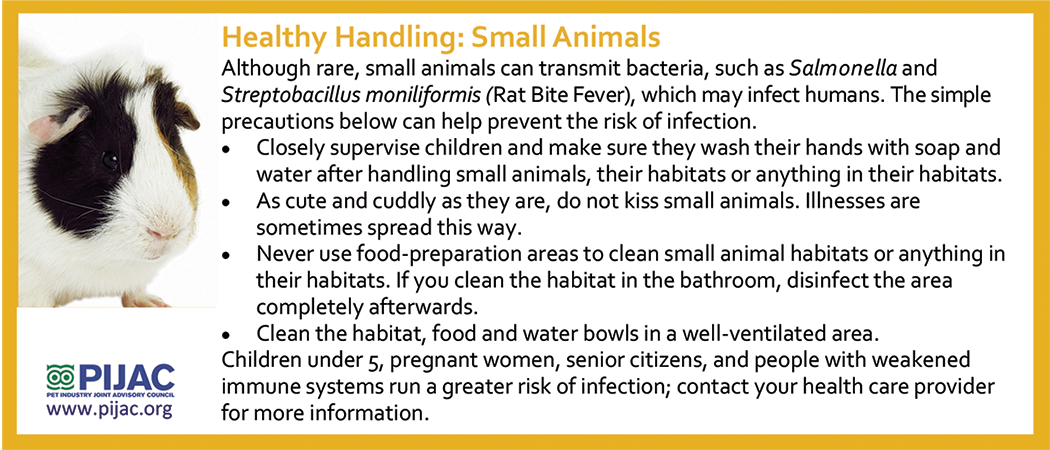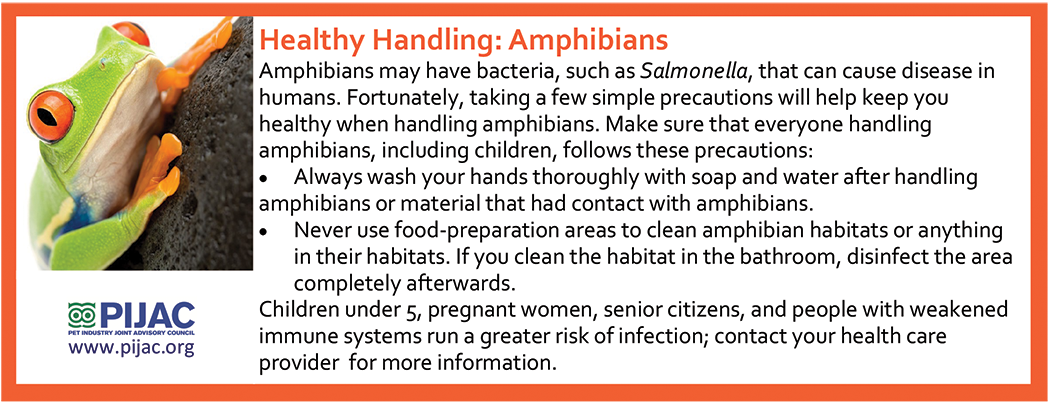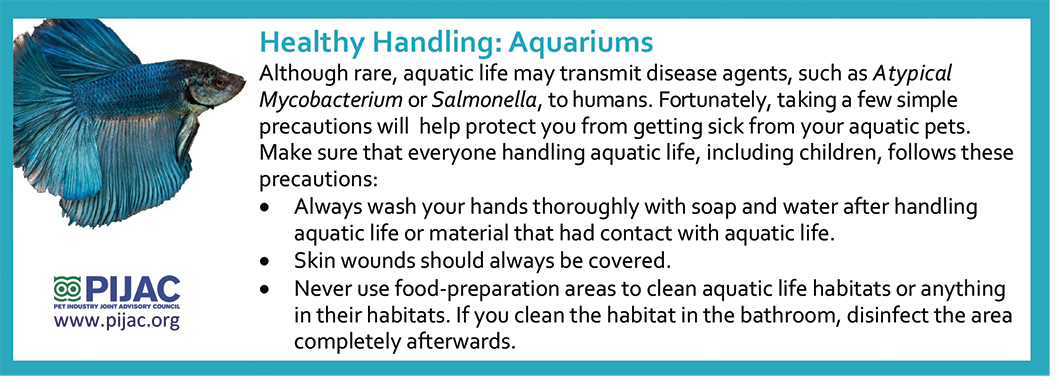Aquarium animals such as reptiles and fish can make great family pets, but it is important to remember that they can sometimes harbour germs (bacteria, viruses and parasites) that cause disease in humans. Bacteria from fish and reptile pets, such as Salmonella, can cause gastroenteritis after entering our digestive system. Other types of bacteria can enter the body through cuts and scratches on the skin, causing a skin infection that may spread to other parts of the body.
• Always wash your hands (and your child's hands) thoroughly with soap and water after touching your pet, its food and its housing in the aquarium.
• Do not allow children to play in your pet's aquarium or with the gravel or water from an aquarium.
• Keep pets away from mouths and do not eat food while playing with your pet.
• If you have cuts, scratches, blisters or sores on your hands or arms, avoid direct handling of your pet, its food and its surroundings.
• Wear gloves or use nets instead of putting bare hands and arms into a fish aquarium or if you use bare hands and arms make sure you wash thoroughly afterwards.
• Discourage elderly people, sick people or anyone with a weakened immune system from directly handling your aquarium pets.
• Keep your pet, its food, food containers and aquarium out of the kitchen, or away from any food storage or preparation areas.
• Never clean the aquarium, or your pet's food containers in the kitchen sink or other areas where food is prepared or eaten. The laundry sink is a better place to do this.
• Do not dispose of aquarium water into your kitchen sink. Instead pour it down the laundry sink and clean the sink immediately.
• Check your pet for signs of illness, and seek advice from a vet if they become sick. Sick or dead animals may be infectious and should be handled, and disposed of, with extra care. How is it diagnosed? If you or a family member becomes ill with severe gastroenteritis or an unusual skin infection, go to your doctor and remember to tell them about your contact with any tropical fish, or animals.






